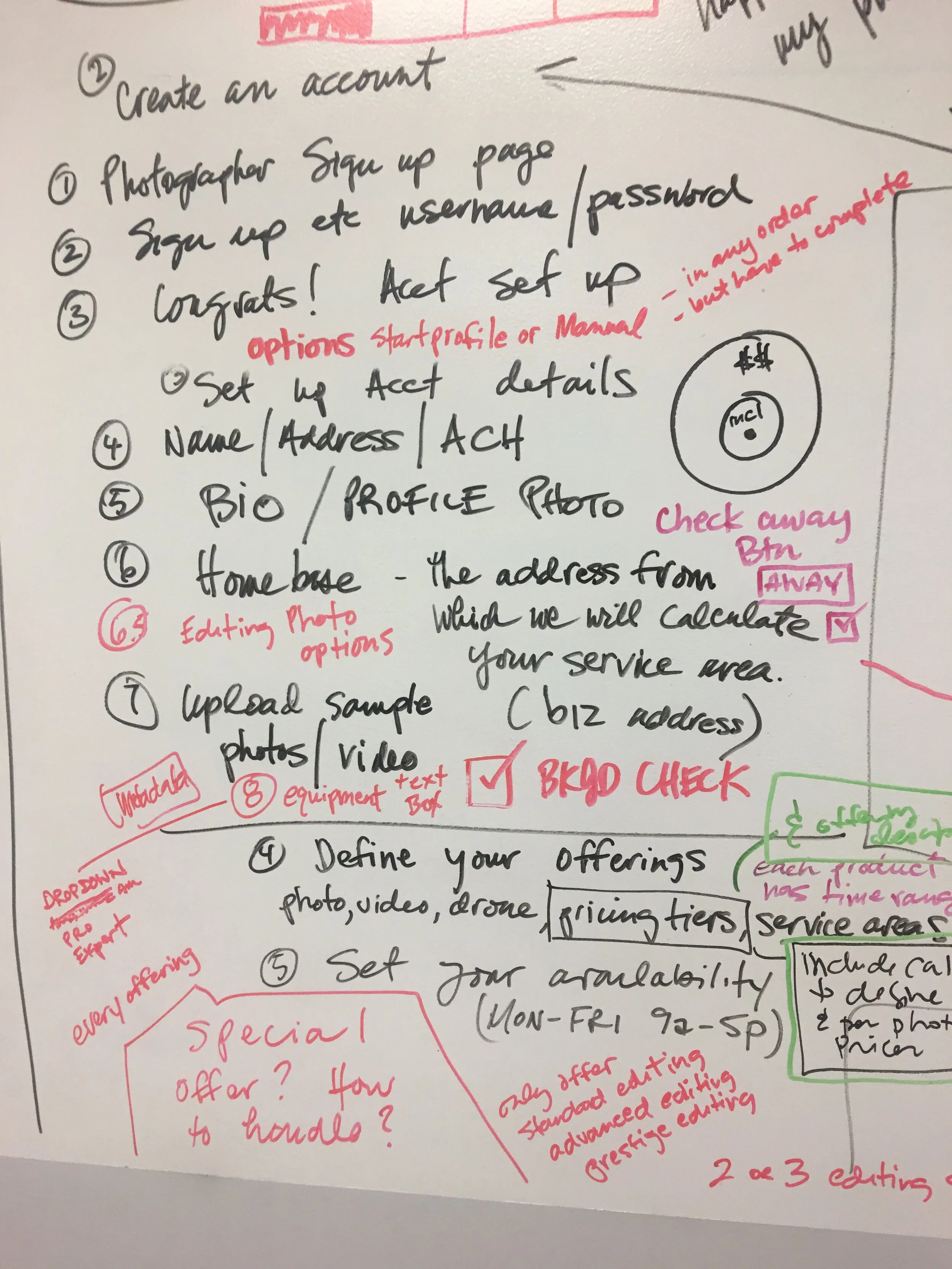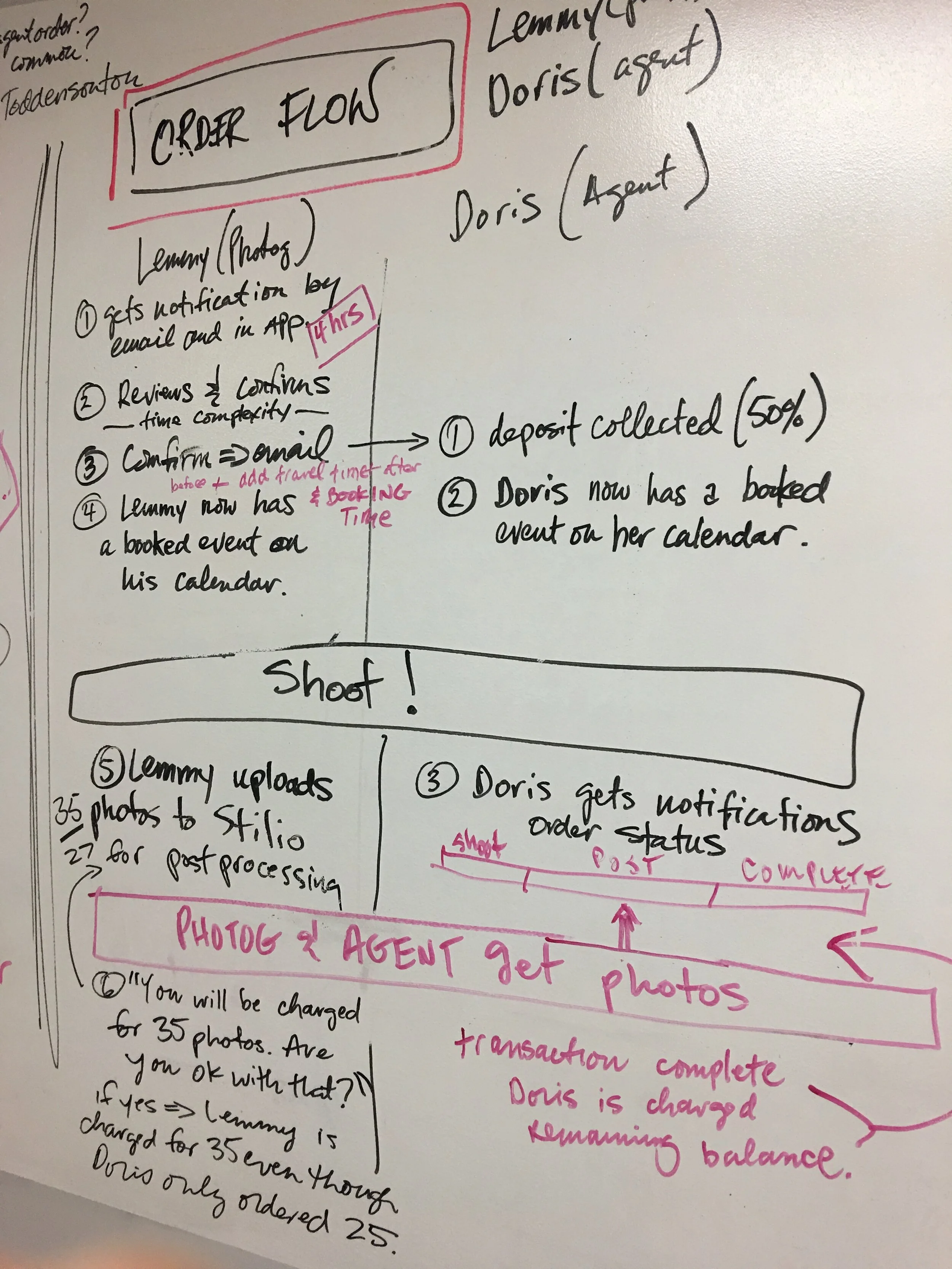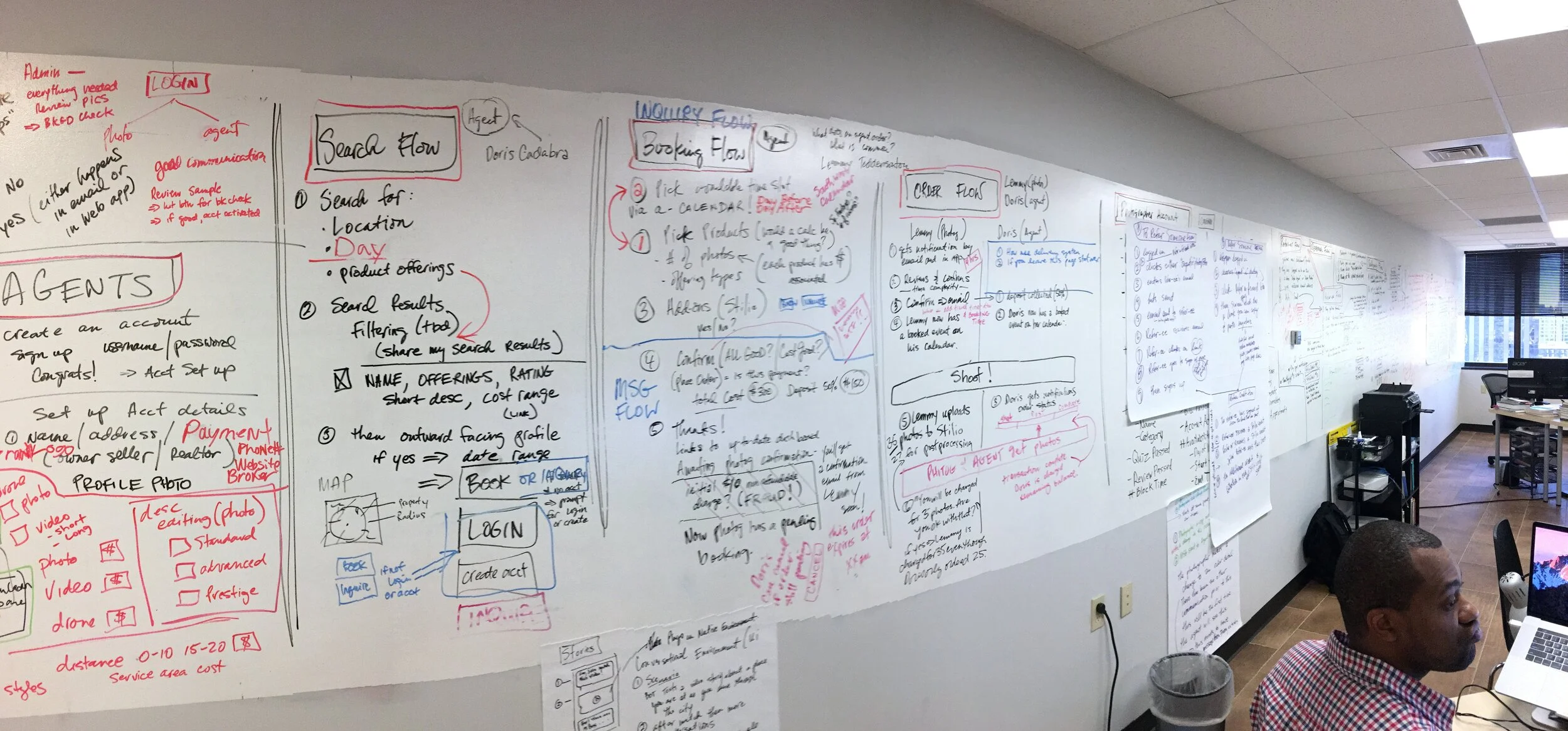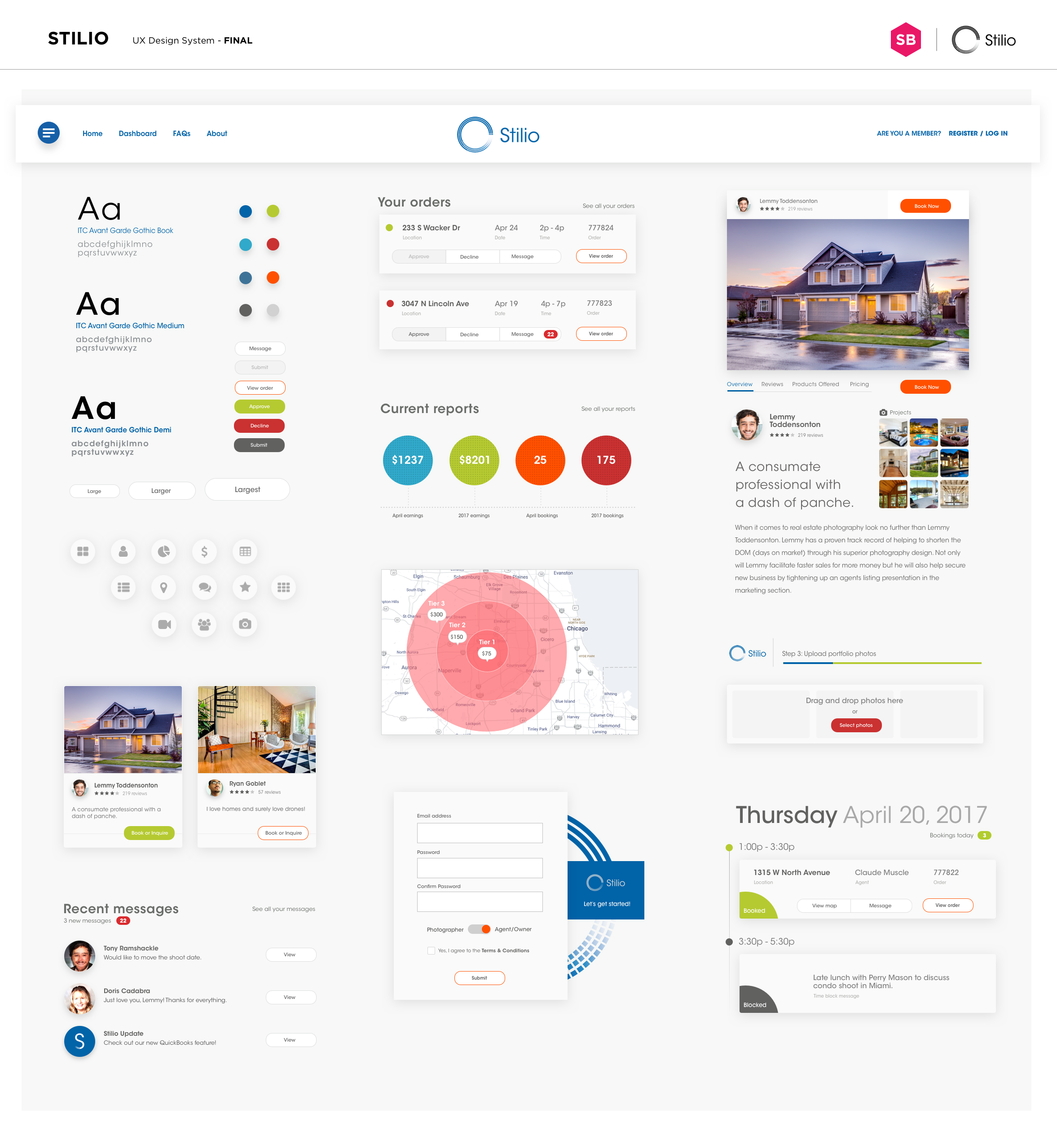
Project type: Responsive Web App // Client: Stilio // Employer: Smashing Boxes
Stilio: Scaling Real Estate Photography Nationwide
THE CHALLENGE
Stilio, a New Orleans startup, connected real estate agents with photographers. After growing to 10 states, its manual operations made nationwide scaling too costly and slow.
Our team was tasked with designing an online marketplace, starting with the photographer experience. The idea was simple: if photographers could onboard quickly, agents would follow. The new platform allowed photographers to create profiles, manage bookings, deliver photos, and get paid all in one place.
MY ROLE
I led the end-to-end design process, collaborating with business and engineering teams to shape the product vision.
Responsibilities:
Discovery research, user interviews, and journey mapping
Facilitating workshops and defining key workflows
Designing user flows, wireframes, and high-fidelity prototypes
Conducting usability testing and building the design system
Discovery and Alignment
I facilitated a two-day workshop with stakeholders, photographers, and agents to map pain points and co-create solutions. Together we prioritized workflows for the MVP: onboarding, portfolio creation, scheduling, invoicing, and photo editing.
This early alignment gave the team clarity and buy-in before design began.


We transformed workshop sketches into user flows to visualize every step. This helped spot gaps, confirm business requirements, and guide the first prototypes.
Our focus was on simplicity, making it effortless for photographers to join and for agents to find and book them.
Designing the Experience

Pilot Launch and Results
An early-access launch in California validated our approach:
600+ photographers registered within the first month
Stilio became the largest real estate photography marketplace in the U.S.
The frictionless experience created the momentum needed to scale nationally.

Photographer dashboard with reports, in-app messaging, appointment calendar.

Product selection and pricing.


Portfolio creation
Design System
To ensure consistency and speed, I built the Stilio Design System in Semantic UI. Reusable components streamlined collaboration and accelerated development as new features rolled out.




